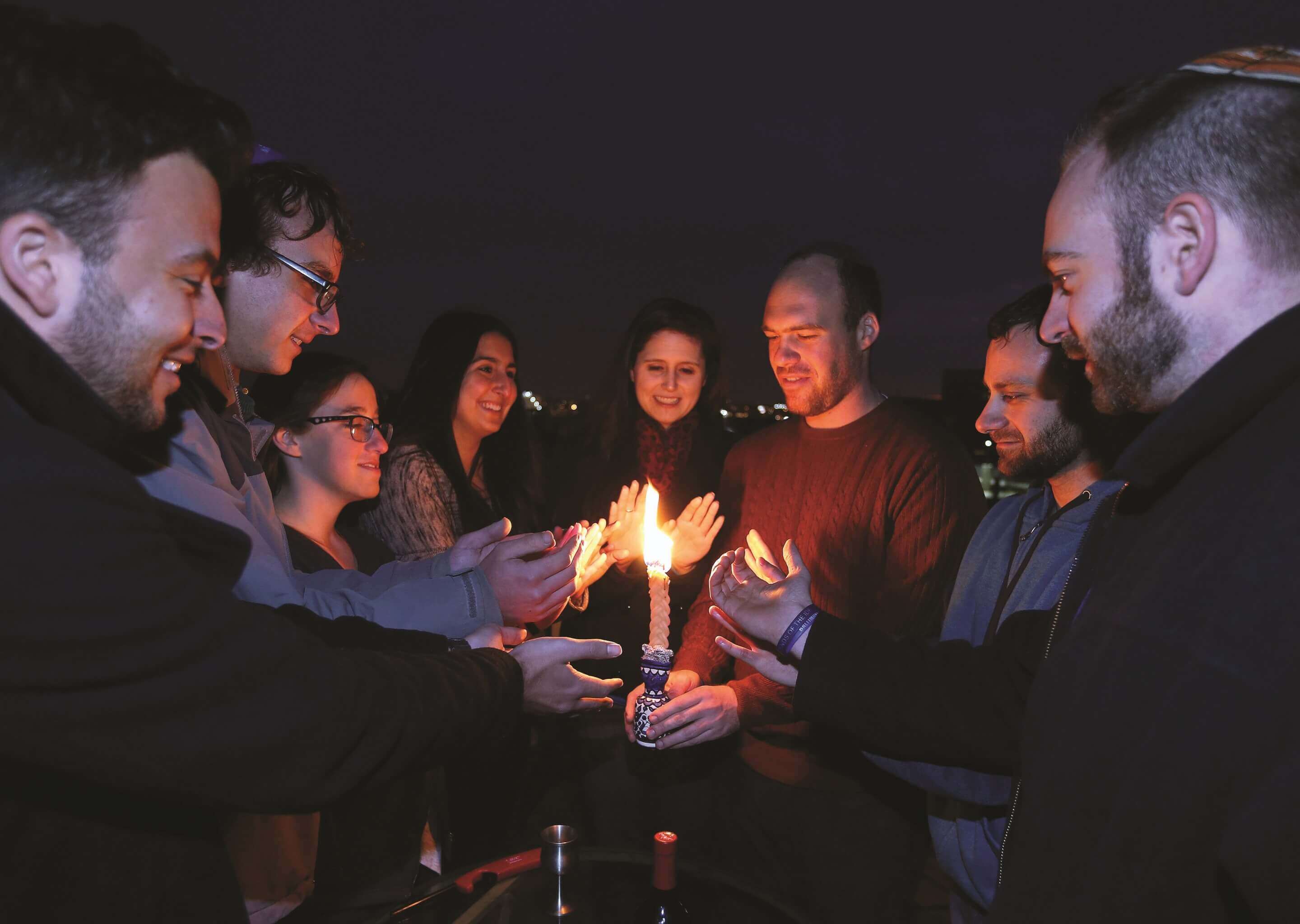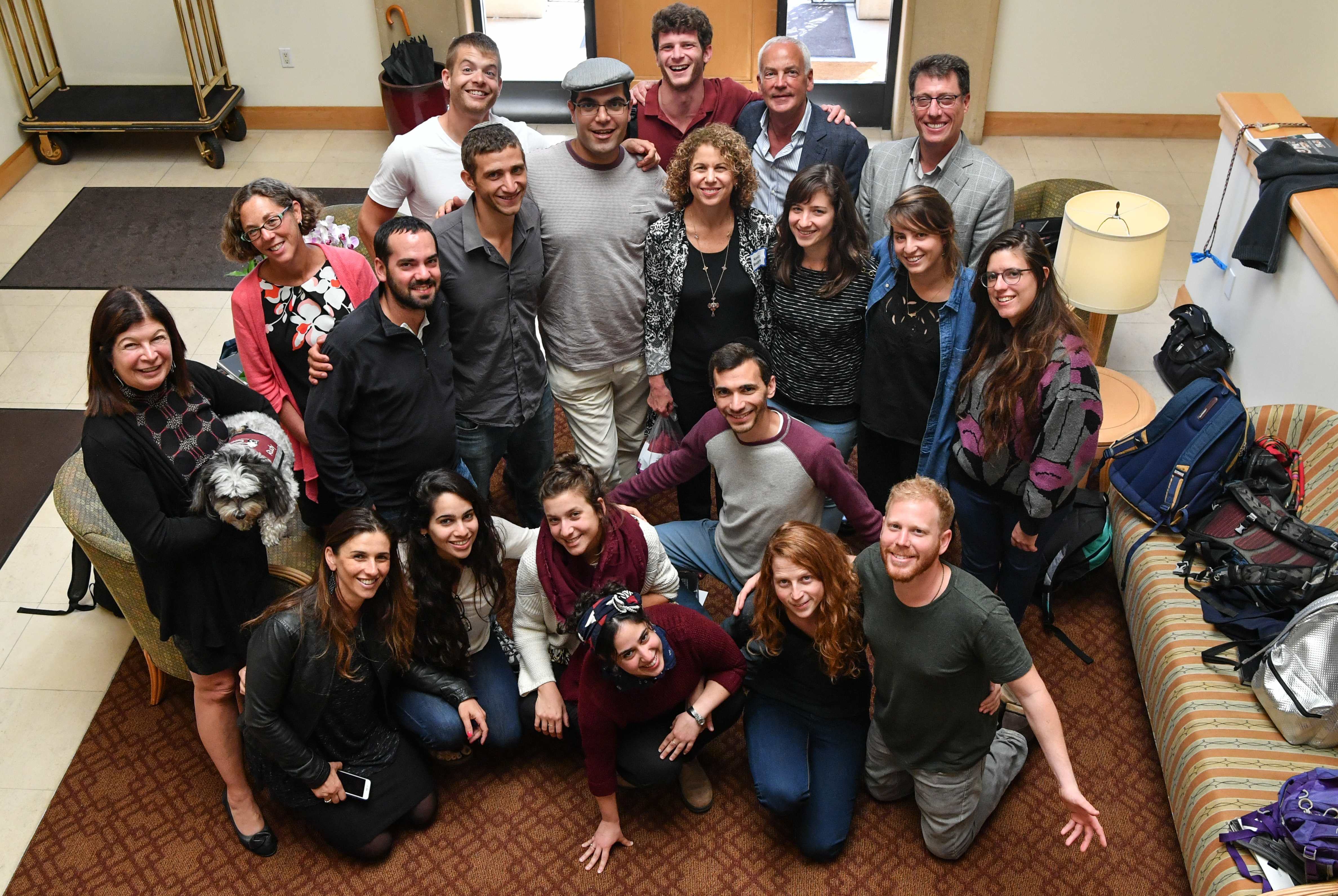Shalem College Peoplehood Project: Building bridges between Bay Area and Israeli Jews
Shalem College Peoplehood Project: Building bridges between Bay Area and Israeli Jews
There is no better way to understand a country’s history, people, and culture than a firsthand visit. Accordingly, sending young American Jews to Israel has been an important investment of the established Jewish community for many years. These experiences have a transformative impact on participants, deepening their Jewish identities and enriching involvement with their local Jewish community and with Israel. Less common, however, is the reverse: providing opportunities for Israelis to gain a personal perspective of American Jewish communities and to build relationships with young American Jewish leaders on their “home turf.”
Today’s young Israelis, now second- or third-generation Israeli born, have had little experience with Diaspora Jewry, leading to a growing disconnect between the American Jewish and Israeli communities. This in turn jeopardizes the future of global Jewish peoplehood and has potential implications for broader Jewish support for the U.S.- Israel relationship. To help counteract this course, the Koret Foundation funds exemplary programs that build bridges between Jews in the U.S. and Israel in the form of immersive experiences in both countries.
The Shalem Jewish Peoplehood Project
One of the foundation’s signature partnerships is with Shalem College in Jerusalem. Established in 2013, Shalem is the first and only liberal arts college in Israel. Students explore ways to actively participate in both the Western and Jewish intellectual traditions, and how to serve as an influential citizen of a modern Jewish state. Koret’s grant founded the Shalem Jewish Peoplehood Project, where a select group of Shalem students study American Jewish communities and then travel to the Bay Area for a week-long immersive trip. During the week, the students experience the diversity, richness, and challenges of the most progressive Jewish community in the United States. The group meets with a variety of Jewish institutional leaders to gain insight as to what it means—and feels like—to be an American Jew today.
Dr. Daniel Gordis, Koret Distinguished Fellow and chair of the core curriculum at Shalem College, is one of the architects of Shalem’s Jewish Peoplehood Project. Dr. Gordis recognizes how deeply the future of the Jewish people in the Diaspora and Israel depend on each other. In designing this program he articulates the following hypothesis, “By experiencing the Bay Area’s approach to ‘doing Jewish’ and integrating Jewish experience into everything from farming to hiking to yoga, Shalem students begin to ask themselves how they manifest their own Jewish identity beyond simply their ‘Israeliness.’ At the same time, they also discover that just about everything they take for granted in Israel—where a Jewish majority imbues everyday life with a uniquely Jewish flavor—is something that must be built and nurtured, and even marketed, in North America.”
Dr. Gordis’s thoughts are affirmed in the observations (below) of the Shalem student trip participants after returning to Israel.
The global Jewish connection inspires a sense of collective responsibility.
These cross-cultural experiences resonate and influence students’ thinking on their own Jewish identity and Israel’s relationship with the Diaspora.
Tal Lev Tzion describes her feelings, “Before the trip, I felt distant from Diaspora Judaism and much more connected to my ‘Israeliness.’ Over the course of the mission I came to understand that there is a very strong emotional connection, which I couldn’t explain, between Jews from around the world. Like a really big family. I now feel that we are part of the same story, that we have a mutual responsibility for one another.”
Eitan Gross expands on the notion that everyone in Israel feels a responsibility for one another. He reflects, “This concept — Kol Yisrael Haverim and Kol Yisrael Arevim Zeh La’Zeh — is critical to developing relationships between Israelis and Jews in the U.S. This idea explains why half of the world’s Jews, the Jews in the US, are so committed to Jews in Israel. On the mission, I saw with my own eyes the importance that American Jews ascribe to the State of Israel and her people.”
Naomi Grunewald sums up her new sense of connection to American Jewry, saying, “I don’t know exactly how to explain why, but I just care. For the first time, I’ve come to understand that we also bear a responsibility for the Jews living in the Diaspora. It’s a relationship like any other—it needs to work both ways. We have an effect upon them just as they have an effect upon us.”
The diversity of ways to “be Jewish” provoked creative thinking.
The students met with leadership at a variety of Bay Area Jewish organizations and institutions, including Hillel groups, Jewish community centers, Urban Adamah, Jewish Family and Children’s Services, Moishe House, AIPAC, and J-Street. The students also met with rabbis at synagogues—and at Glide Memorial Church, where they heard from other community leaders a well.
Seth Goldstein, Vice President at Shalem, elaborates, “Many of the students noted how focused the Bay Area Jewish community is on curating Jewish experiences for themselves. This has led the students to discuss if and how they could begin to create Jewish experiences here in Israel that would be personally meaningful to them and their peers.”
Nadav Cohen reflects, “Our visit gave me the opportunity both to encounter the Bay Area’s Judaism and to experience, in a broader sense, the community’s values and way of life. I am certain these ‘social phenomena’ will deeply influence my studies at Shalem.”
Noam Foa concurs, adding, “I now see the Jews of San Francisco whom we met as an integral part both of my Judaism and of my Israeli-ness. Their cultural flourishing inspires me to learn more from them.”
Tai Lev Tzion pursues this theme, “American Judaism has needed to ask itself difficult questions of identity that we in Israel consider self-evident. American Jews have had to find honest answers to these questions—and creative solutions to these challenges. This can be a source of inspiration for Jewish life in Israel.”
Being Jewish and pro-Israel in the U.S. can be complex.
The Bay Area has long been in the forefront of progressive views. Currently, this includes the rise of BDS campaigns (Boycott, Divestment and Sanctions of Israel) on college campuses. Many Bay Area Jews, regardless of the depth of their Jewish involvement or participation, find themselves having to choose between their support for Israel and other progressive causes, pitting their Jewish identity against their American identity.
Ofri Gilo shares one of his revelations from the trip. “While I consider myself liberal, or ‘left-wing’ here in Israel, it was shocking to grasp that if I affiliated with some elements of progressive politics in the States, it would mean taking a stand against Israel. I had no idea that young Jews have to deal with this bias, and are scared to be openly pro-Israel because they are afraid they will be shunned because of their Zionism. This opened my eyes to the reality on the ground for many U.S. Jews and how Israel is seen in the world.”
Paul Zarfati adds, “I was surprised and moved by the unconditional love expressed by so many of the people we met—solely because we are Israeli Jews. The strength of American Jewry, and the challenges it faces compared to Israeli Jews, made me understand that we are two main branches of the same Jewish civilization. Before the mission, I had never thought of Israel as a ‘Jewish nation.’”
The Shalem students now realize that the two communities—Israeli Jews and Bay Area Jews— struggle with similar questions of identity, practice, and politics—but in very different contexts. On the one hand, how might secular Israelis think about their Jewish identity separately from civic life? On the other hand, how do American Jews make their Jewish identity relevant to their everyday life? The link, the common question, is: Why and how to be consciously Jewish? The trip participants will continue to reflect on this as they pursue their studies at Shalem College and as they become the next leaders of Israel.




